- Death toll rises to 18 after junta airstrike on Ponnagyun village market
- Regime arrests dozens of Muslims in Sittwe over alleged Arakan Army links
- Over 200 IDPs in Ponnagyun struggle without shelter, food aid
- Junta airstrikes inflict deep psychological trauma on children in Arakan State
- Photo News: Over 200 IDPs in Ponnagyun in urgent need of shelter assistance
Rice harvest expected to decline in Arakan State
“Many farmers can’t afford agricultural materials as their prices have surged. Many farmers are growing fewer acres this year,” said farmer U Aung Thein Tun from Ponnagyun Township.
08 Jul 2024
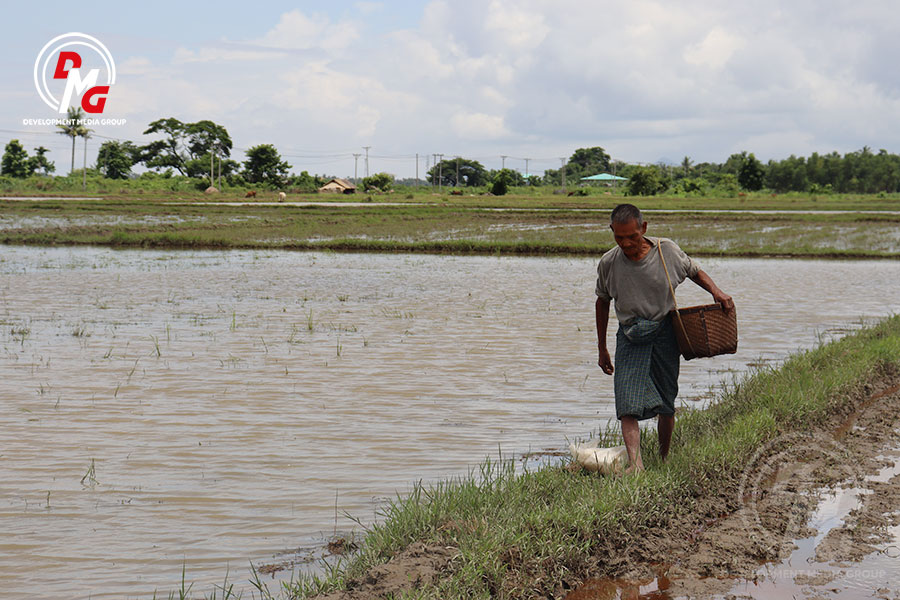
DMG Newsroom
8 July 2024, Sittwe
Rice farmers are being forced to leave their fields idle in Arakan State due to high costs and shortages of agricultural inputs such as fertiliser and fuel.
It costs at least 1 million kyats to cultivate an acre of paddy, according to farmers.
“Many farmers can’t afford agricultural materials as their prices have surged. Many farmers are growing fewer acres this year,” said farmer U Aung Thein Tun from Ponnagyun Township.
U Aung Thein Tun said he has around 50 acres of farmland, but is only growing on 20 of those acres this monsoon season due to the high prices.
Many farmers are only engaging in subsistence farming for their own consumption, at least until the next paddy growing season.
Farmer U Aung Hla Zan from Apaukwa Village in Kyauktaw Township said he only cultivated three acres this year, while he normally planted 10 acres in previous years.
“Fertiliser prices are exorbitant, and I can’t afford it,” U Aung Hla Zan explained. “So, I am only growing for consumption. Many farmers only grow just to get enough rice to eat until the next growing season.”
Farmers did not receive state-sponsored agricultural loans this year due to instability in the region. The rice harvest from last year also did not sell well due to the fighting, and farmers say they therefore cannot afford the agricultural inputs necessary to grow monsoon paddy.
“There were no buyers for the rice we grew last year. And the prices of fertiliser and fuel have skyrocketed. Farmers are not rich. They can’t grow on all their farmland as they can’t afford to incur debt. They have to leave their farms idle,” said a farmer from Tin Htein Kan Village in Mrauk-U Township.
With the rice harvest expected to decline, food security is likely to be a challenge for Arakan State next year.
The AA has supplied some rice seeds, fuel and tractors, but the supply is limited, according to farmers.




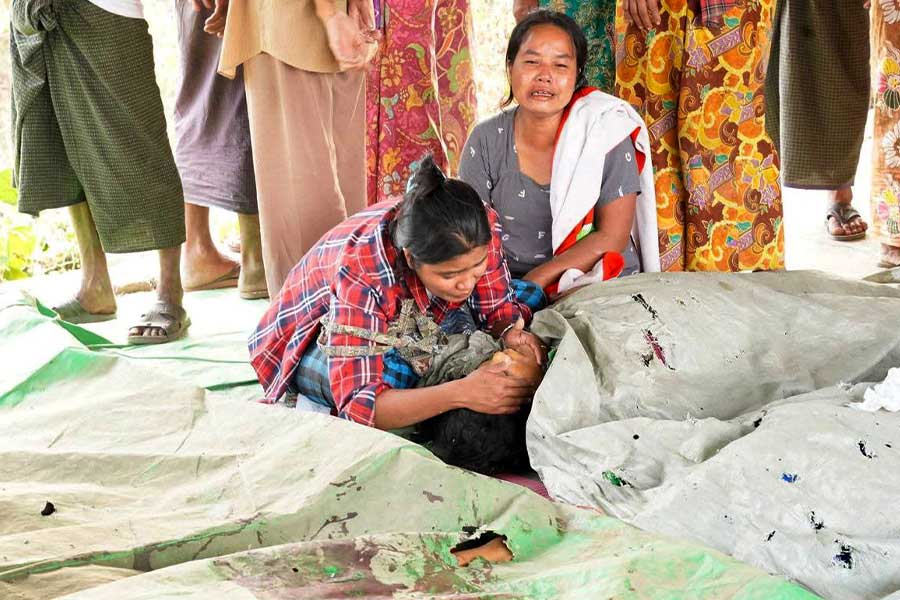
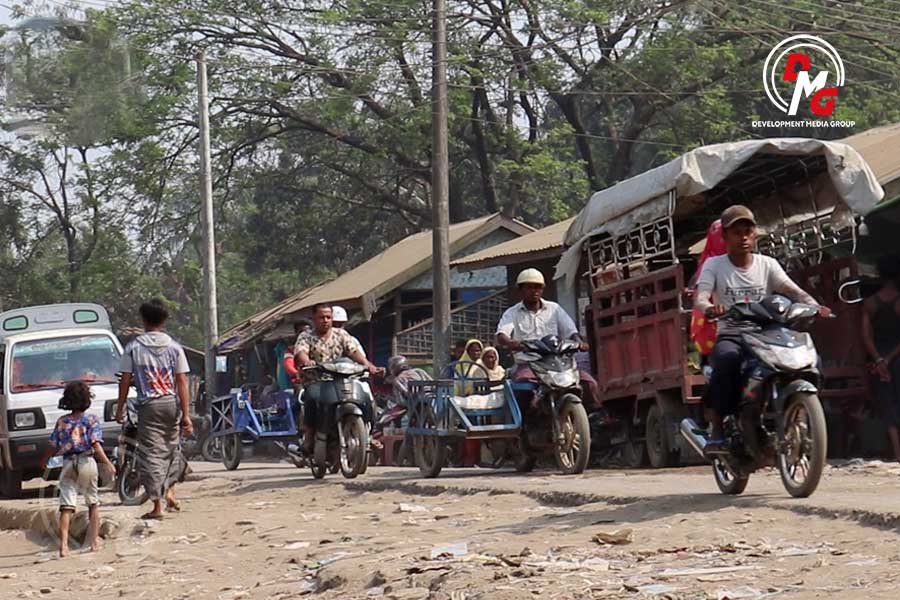
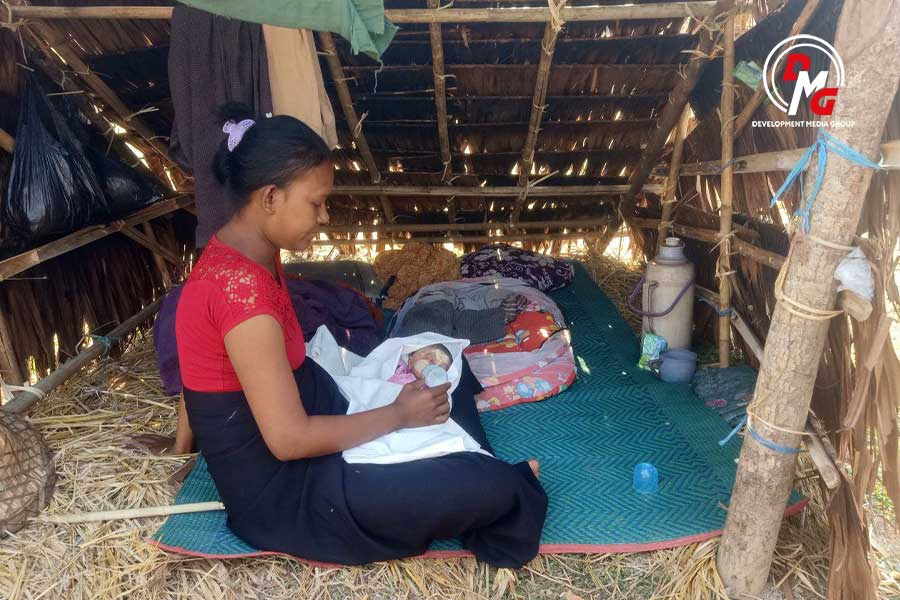
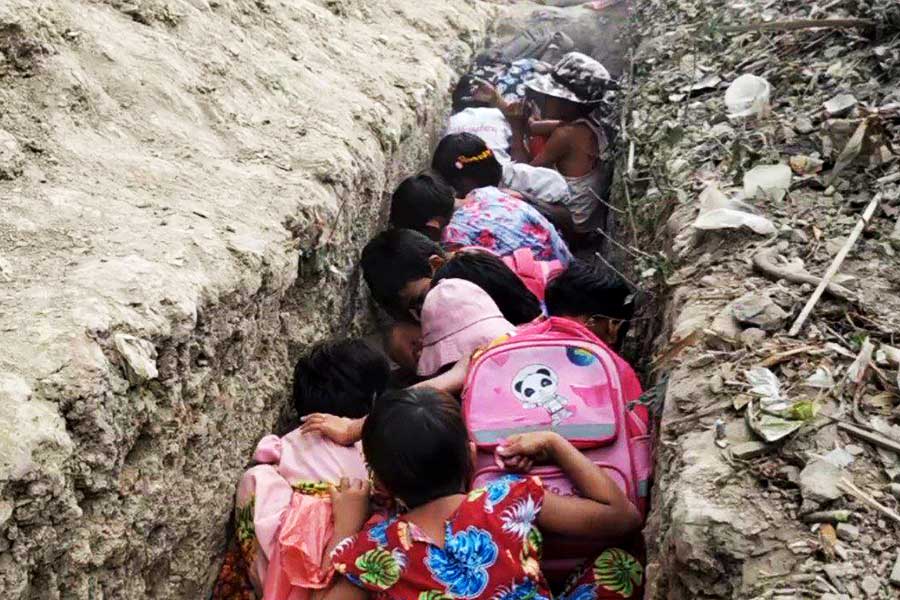
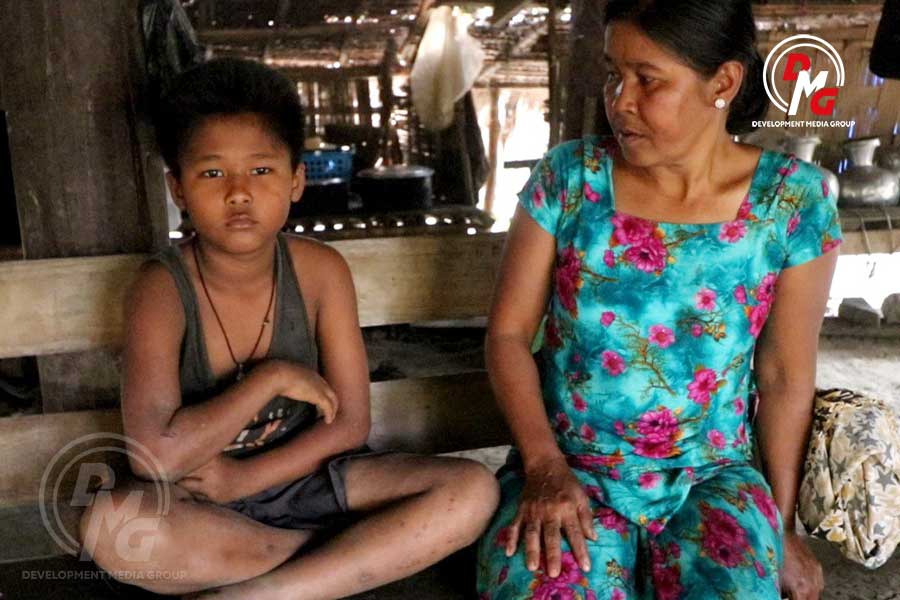








.jpg)